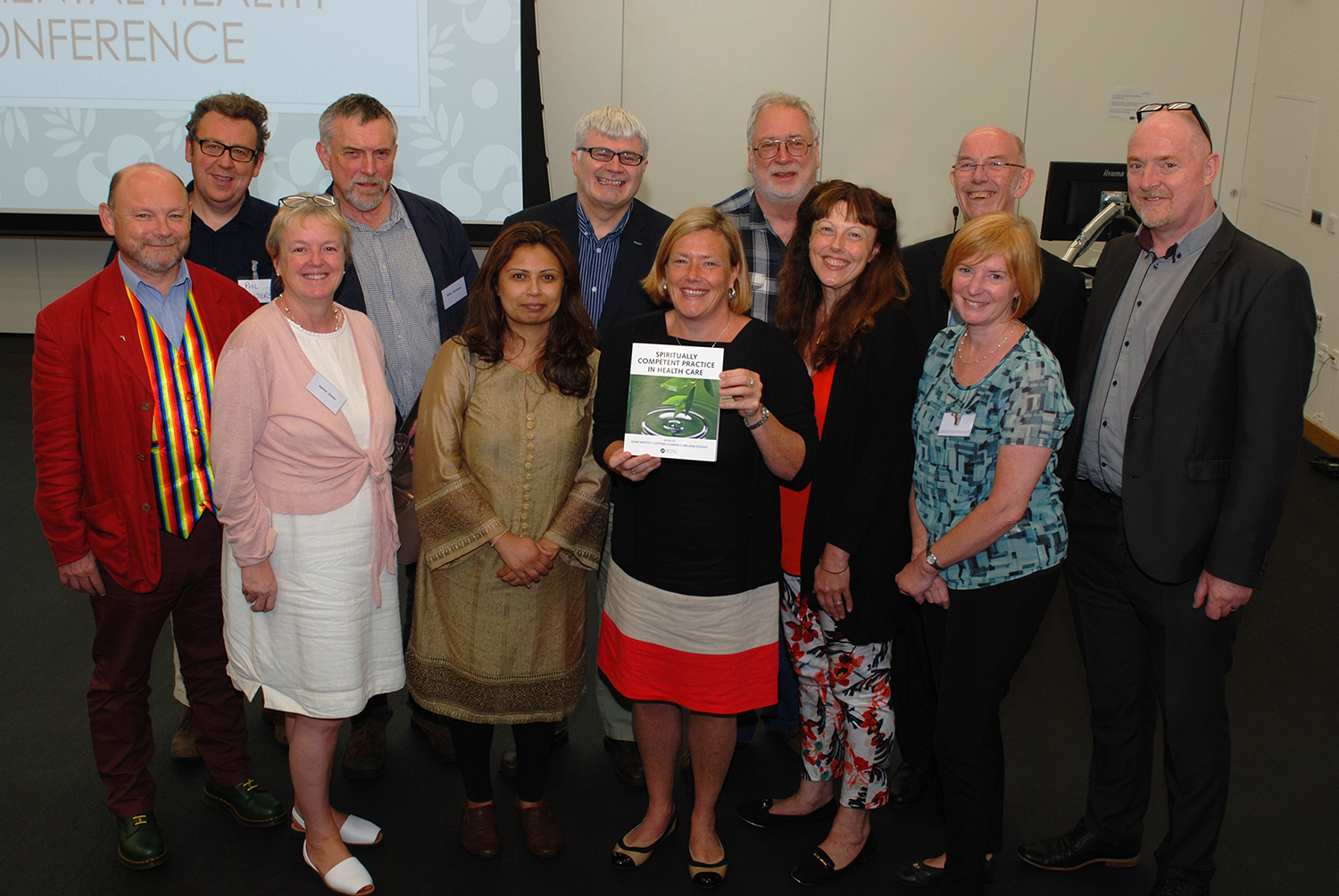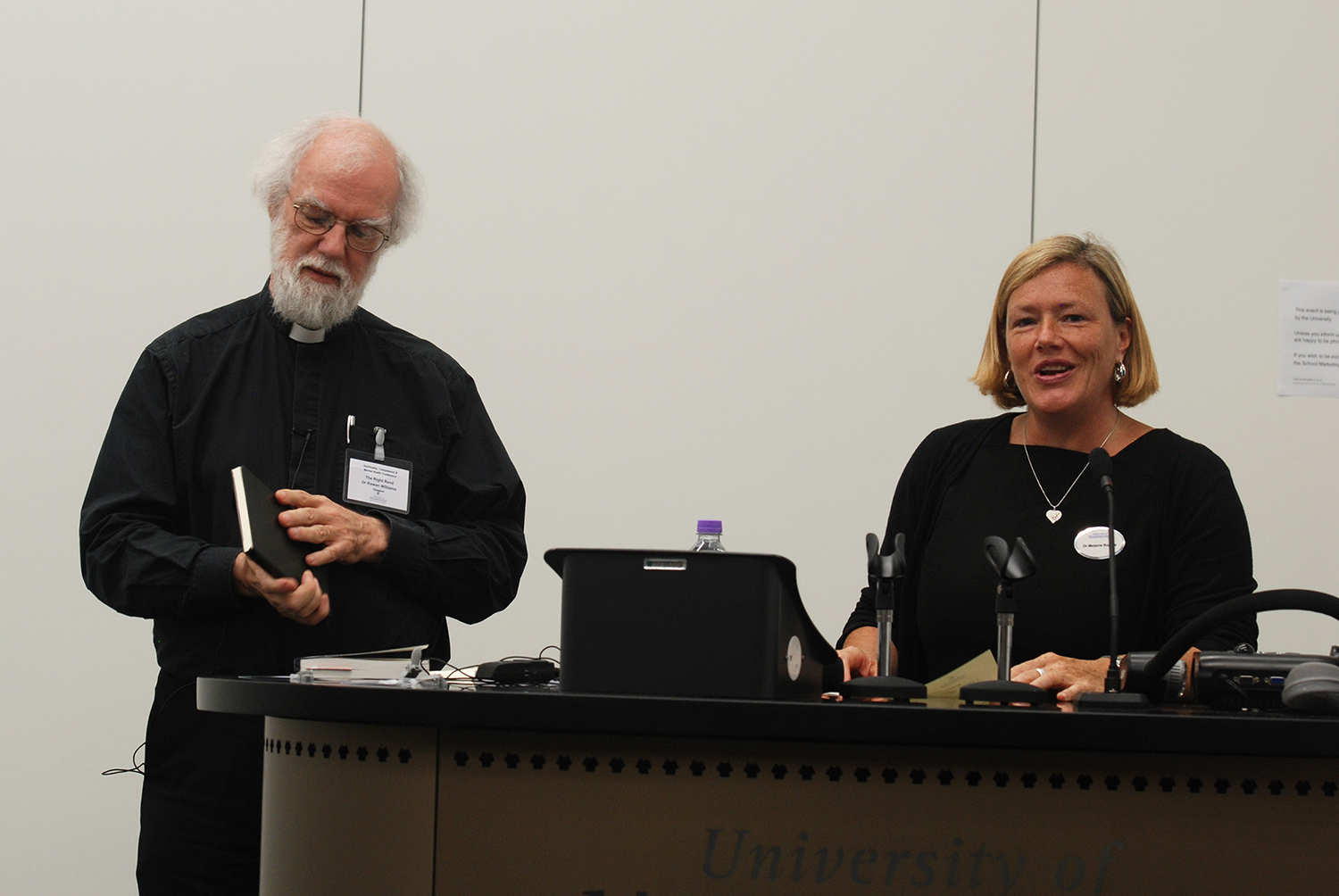Professor John Wattis, visiting Professor of Psychiatry for Older Adults at the University of Huddersfield, and Dr Melanie Rogers Senior Lecturer in the Division of Health and Rehabilitation University of Huddersfield.
The second biennial conference, organised jointly by he University of Huddersfield Spirituality Special Interest Group (SSIG), and the South West Yorkshire Partnership NHS Foundation Trust (SWYFT) explored research and practice addressing spirituality in health care. Evidence-based nursing is often seen being as all about knowledge and skills but the emphasis of this conference was on the evidence-base for the importance of good healing relationships, facilitated by approaches that recognise the value of person-centred care that demands personal qualities in nurses and time spent with patients.
explored research and practice addressing spirituality in health care. Evidence-based nursing is often seen being as all about knowledge and skills but the emphasis of this conference was on the evidence-base for the importance of good healing relationships, facilitated by approaches that recognise the value of person-centred care that demands personal qualities in nurses and time spent with patients.
The conference had a buss and excitement with 220 delegates, mainly from the UK included people who use services, students, academics and researchers. The conference was also the setting for the launch of a new book Spiritually Competent Practice in Health Care to which several of the speakers had contributed. Professor John Wattis,gave an overview of the book and Dr Melanie Rogers spoke about her research into availability and vulnerability as a way of operationalising spirituality.
Images courtesy of the University of Huddersfield
The main keynote speaker, former Archbishop of Canterbury Dr Rowan Williams, talked on Nourishing the spirit: relations, stories, rhythms, and drew on poetry, literature, academic research and philosophy. He stressed the importance of dependable relationships, opportunities to construct and tell our ‘stories’ and looking after our physical needs. Spiritual life needed to be grounded in our physicality. “The spiritual life is at least as much to do with knowing how to cultivate a garden or make loaf of bread as it is to do with church or chapel.”
Professor of Nursing at Staffordshire University, Wilf McSherry addressed the research around what spiritually competent practice looks like in health and social care and emphasised that it was an integral part of good practice.
Fiona Venner, Chief Executive of Leeds Survivor Led Crisis Service, followed this with a talk asking What does compassion and love look like in crisis care? stressing how important the ‘dependable other’ was, in the voluntary service she led, to the recovery of people in crisis.
Kevin Bond, former Chief Executive of NAVIGO, a social enterprise providing mental health services in NE Lincolnshire emphasised the importance of valued social roles in recovery, using principles of social role valorisation.
The final session was on creativity and spirituality from Phil Walters, Strategic Lead, and Debs Taylor, peer project development worker for Creative Minds. Debs spoke about her experiences as a service user and how important the activities and relational aspects of Creative Minds had been to her recovery.
This account is partly based on a report on the University of Huddersfield website: https://www.hud.ac.uk/news/2017/july/spiritualityinhealthcareconferencewelcomesformerarchbishop/
